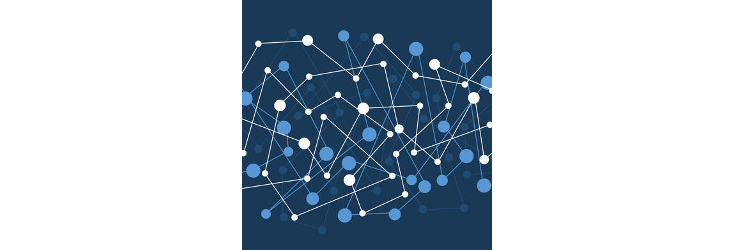“Measuring and Mitigating OAuth Access Token Abuse by Collusion Networks”
Communications of the ACM, May 2020, Vol. 63 No. 5, Pages 103-111
Research Highlights
By Shehroze Farooqi, Fareed Zaffar, Nektarios Leontiadis, Zubair Shafiq
“A comprehensive measurement study of collusion-based reputation manipulation services on Facebook. ”
We uncovered a thriving ecosystem of large-scale reputation manipulation services on Facebook that leverage the principle of collusion. Collusion networks collect OAuth access tokens from colluding members and abuse them to provide fake likes or comments to their members. We carried out a comprehensive measurement study to understand how these collusion networks exploited popular third-party Facebook applications with weak security settings to retrieve OAuth access tokens. We infiltrated popular collusion networks using honeypots and identified more than one million colluding Facebook accounts by “milking” these collusion networks. We disclosed our findings to Facebook and collaborated with them to implement a series of countermeasures that mitigated OAuth access token abuse without sacrificing application platform usability for third-party developers.
1. Introduction
Reputation is a fundamental tenet of online social networks. People trust the information that is posted by a reputable social media account or is endorsed (e.g., liked) by a large number of accounts. Unfortunately, reputation fraud is prevalent in online social networks. A number of black-hat reputation manipulation services target popular online social networks. To conduct reputation manipulation, fraudsters purchase fake accounts in bulk from underground market-places, use infected accounts compromised by malware, or recruit users to join collusion networks.
Online social networks try to counter reputation manipulation activities on their platforms by suspending suspicious accounts. Prior research on detecting reputation manipulation activities in online social networks can be broadly divided into two categories: (a) identifying temporally synchronized manipulative activity patterns; (b) identifying individual accounts suspected to be involved in manipulative activity based on their social graph characteristics. Recent studies have shown that fraudsters can circumvent these detection methods by incorporating “normal” behavior in their activity patterns. Defending against fraudulent reputation manipulation is an ongoing arms race between fraudsters and social network operators.
In this paper, we uncovered a thriving ecosystem of reputation manipulation services on Facebook that leverage the principle of collusion. In these collusion networks, members like other members’ posts and in return receive likes on their own posts. Such collusion networks of significant size enable members to receive a large number of likes from other members, making them appear much more popular than they actually are. As expected, colluding accounts are hard to detect because they mix real and fake activity. Our goal in this paper is to understand their methods of coordination and execution to develop effective and long-lasting countermeasures.
OAuth Access Token Leakage. To understand the extent of the problem collusion networks pose, we analyzed popular Facebook collusion networks. We found that collusion networks conduct reputation manipulation activities by exploiting popular third-party Facebook applications with weak security settings. Third-party Facebook applications gain restricted access to users’ accounts using OAuth 2.0, which is an authorization framework. When a user authenticates an application using OAuth 2.0, an access token is generated. Collusion networks collect these OAuth access tokens for applications, which utilize the implicit mode in OAuth 2.0, with help from colluding members. These access tokens are then used to conduct activities on behalf of these applications and colluding accounts. Using a large pool of access tokens, collusion networks provide likes and comments to their members on an on-demand basis. We found that popular collusion networks exploited a few popular Facebook applications. However, our analysis of top 100 Facebook applications revealed that more than half of them are susceptible to access token leakage and abuse by collusion networks. Although prior research has reported several security weaknesses in OAuth and its implementations, we are the first to report large-scale OAuth access token leakage and abuse. As OAuth 2.0 is also used by many other large service providers, their implementation may also be susceptible to similar access token leakage and abuse.
Milking Collusion Networks Using Honeypots. We deployed honeypots to conduct a large-scale measurement study of popular Facebook collusion networks. Specifically, we created honeypot Facebook accounts, joined collusion networks, and “milked” them by requesting likes and comments on posts of our honeypot accounts. We then monitored and analyzed our honeypots to understand the strategies used by collusion networks to manipulate reputation. We identified more than one million unique colluding accounts by milking collusion networks. As part of the milking process, we submitted more than 11K posts to collusion networks and received a total of more than 2.7 million likes. We identified the membership size of collusion networks by tracking the number of unique accounts that liked the posts of our honeypot accounts. Our membership estimate of these collusion networks is up to 295K for hublaa.me followed by 233K for official-liker.net in the second place. The short URLs used by collusion networks to retrieve access tokens have more than 289 million clicks to date. Our analysis of short URLs shows that popular collusion networks are used daily by hundreds of thousands of members. Collusion networks monetize their services by displaying advertisements on their heavily visited websites and offering premium reputation manipulation plans.
Countermeasures. We disclosed our findings to Facebook and worked with them to mitigate these collusion-based reputation manipulation services. Although we identified a wide range of possible countermeasures, we decided to implement the countermeasures that provide a suitable tradeoff between detection of access token abuse and application platform usability for third-party developers. For instance, we do not block the third-party applications exploited by collusion networks because it will negatively impact their millions of legitimate users. We do not disallow OAuth implicit mode, which is optimized for browser-based applications, because it will burden third-party developers with prohibitive costs associated with serverside application management. As part of countermeasures, we first introduced rate limits to mitigate access token abuse but collusion networks quickly adapted their activities to avoid these rate limits. We then started invalidating access tokens that are milked as part of our honeypot experiments to mitigate access token abuse by collusion networks. We further rate limited and blacklisted the IP addresses and autonomous systems (ASes) used by collusion networks to completely cease their operations.
About the Authors:
Shehroze Farooqi, The University of Iowa, Iowa City, IA, USA.
Fareed Zaffar, Lahore University of Management Sciences, Lahore, Pakistan.
Nektarios Leontiadis, Facebook, Washington, D.C., USA.
Zubair Shafiq, The University of Iowa, Iowa City, IA, USA.
See also in Internet Salmagundi:






